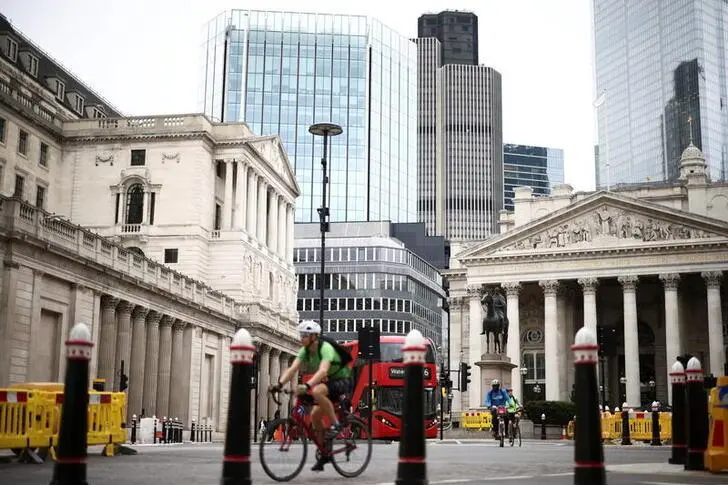PHOTO
LONDON- The Bank of England needs to lean against inflation pressures and stop expectations of higher price growth from getting entrenched in medium-term wage and pricing decisions, BoE policymaker Catherine Mann said on Friday.
"Going into 2022, current price and wage expectations coming from the (BoE's) DMP survey are inconsistent with the 2% target, and if they are realised in 2022 are likely to keep inflation strong for longer," Mann said.
"In my view, the objective for monetary policy now should be to lean against this 'strong-for-longer' scenario," she added in a speech to the OMFIF central banking think tank.
Investors see an 80% chance of the BoE raising interest rates again to 0.5% on Feb. 3, having increased them from 0.1% to 0.25% last month when it became the first major central bank to raise borrowing costs since the pandemic.
British consumer price inflation hit a nearly 30-year high of 5.4% in the 12 months to December and many economists think it will go higher than the BoE's most recent estimate of a peak of around 6% in April.
"The ingredients appear to be in place for inflation to stay strong for longer, but costs becoming embedded in prices to create a reinforcing dynamic is not inevitable," Mann said.
December's rate rise aimed to influence strategic decisions that workers, businesses, and asset holders were now making, she said, adding: "changing expectations is the first defence against a reinforcing wage-price dynamic."
Mann, who voted with the majority on the BoE's Monetary Policy Committee to raise rates in December, said she was waiting for new BoE staff briefings before she decides whether rates need to increase in February.
Depending on the strength of global inflation pressures, BoE monetary policy could need to be tighter than warranted by British domestic economic conditions alone, she said.
But early action could limit the amount of tightening needed further along the line.
"To the extent that monetary policy actions now dampen expectations, and to the extent that any deceleration of global prices is passed-through to UK inflation, and to the extent that financial markets are already cautioning decisions, the next steps could exhibit a shallower path," Mann said.
(Reporting by David Milliken Editing by William Schomberg) ((david.milliken@thomsonreuters.com; +44 20 7513 4034;))





















